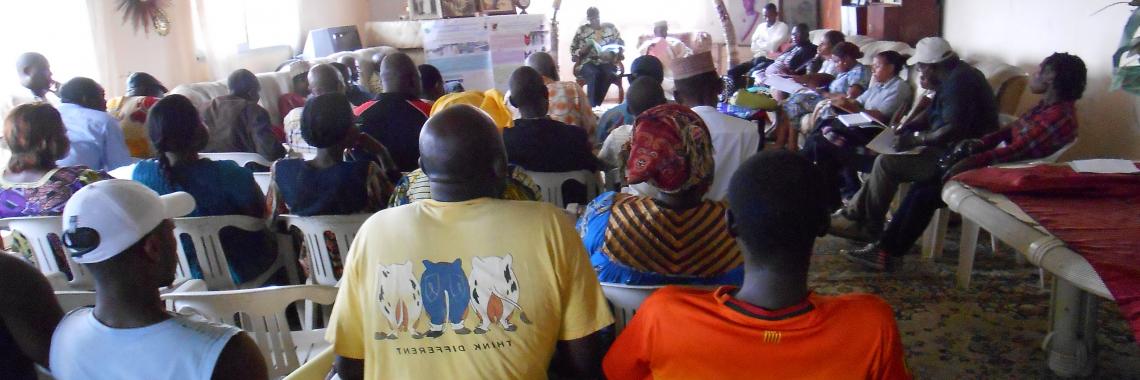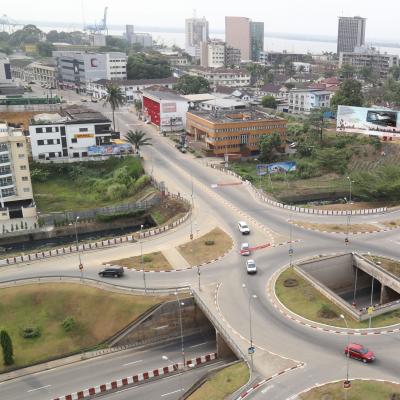
Listening Offices
Background
The City of Douala created "Listening Offices" in order to gather the opinion of residents in the framework of urban planning and infrastructure projects having potential social impacts. This initiative was tested particularly in the context of a large project of rainwater drainage (restoration of nearly 50 kms of main pipes) through densely populated areas.
The study for the development of a Resettlement Action Plan estimated that nearly 2,482 households may be displaced by the project, or about 12,500 people. To reduce the major social impact, Douala city council has agreed to the optimization of the Resettlement Action Plan. Said optimization aims to reduce the number of people moving by a reduction of the width of the lanes on the banks to build. This has made it possible to reduce the number of relocating households from 2,482 to 1,005. These households will need support throughout the relocation process to minimize the psychological and social effects that may result. The Unit for Social and Environmental Engineering (USEE) of the CUD will focus on this mission. It will begin its accompanying program by a “door to door” method to inform the people affected by resettlement. Although it is effective, this approach requires a lot of time, energy and favorable weather conditions. The USEE will therefore seek the help of traditional leaders of various districts where the project will be implemented. They will conduct a series of consultations that will lead to the creation of the Listening Offices.
Goal/Objectives
The Listening Offices are therefore bridging institutions between the USEE and affected persons, and their mission is to include people in the implementation of the Urban Planning Project in order to reduce the social impacts.
The specific objectives of those institutions are:
- Create an ideal framework for the processing of requests and complaints.
- Create an ideal framework to reduce tensions.
- Improve the management of household waste and the maintenance of the restored pipes.
- Improve the management of sanitary facilities to improve the health impacts of the project.
- Increase social cohesion and civic participation.
Implementation
To these eight offices located in some chefferies traversed by the Rain Drainage Project can be added the permanent office in city hall. Each office is composed of a president (district leader), a rapporteur (USEE sociologist), three other members, a representative of the sub-prefect, a mayor and local residents.
In order to include the populations in the implementation of the drainage project, the Douala city council held from October 19 to November 10 2015 a series of forums in the chefferies – seat of the Listening Offices. Such forums were designed to gather opinions and complaints of the people impacted by the project, and identify, in a participatory way, actions to improve the environment and living conditions of the beneficiary populations so that the drainage project is not limited only to the initial study.
Results
The Listening Offices has helped to conduct thousands of interviews with local residents, with nearly 5,000 people conscious of the importance of the project. Over 1,000 households were identified and they received ongoing psychological support. The Listening Offices also collect data to evaluate the socioeconomic impacts of the Rain Drainage Project on the population.
This type of consultation and citizen participation initiatives can be adapted to other areas of municipal operations.
